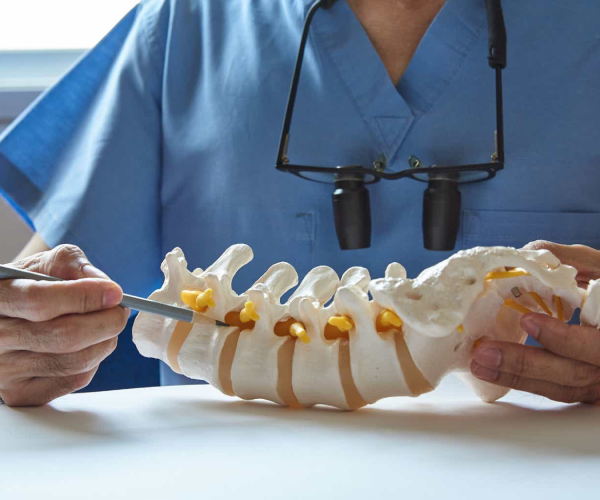
How Safe Is Spine Surgery? Understanding the Risks and Benefits
Spine surgery has emerged as a significant treatment option for people struggling with chronic back pain, neurological deficits, or debilitating spinal conditions. With advancements in surgical technology and techniques, patients today have access to safer, more precise spine surgery options than ever before. However, any surgical procedure has its risks, and spine surgery is no exception. Understanding the risks and benefits of spine surgery can help patients make informed decisions about their health.
What Is Spine Surgery?
Spine surgery encompasses a range of surgical procedures aimed at addressing problems in the spine, such as herniated discs, spinal stenosis, scoliosis, fractures, and degenerative conditions. The purpose of these surgeries may be to alleviate pain, restore function, correct deformity, or improve quality of life. There are two primary types of spine surgery: open and minimally invasive.
- Open Surgery: Traditional approach where a larger incision is made, allowing direct visualization of the spine. Open surgery is commonly used for complex spine conditions that require a detailed and extensive approach.
- Minimally Invasive Spine Surgery (MISS): This approach uses smaller incisions and specialized tools, often guided by X-ray or endoscopy. MISS is associated with less blood loss, shorter recovery times, and reduced risk of infection.

Benefits of Spine Surgery
-
Pain Relief
Many people undergo spine surgery to relieve chronic or severe pain caused by spinal disorders. Conditions such as herniated discs, spinal stenosis, and degenerative disc disease can cause nerve compression, leading to pain that radiates to other areas of the body. Spine surgery aims to decompress the nerves, providing relief from pain and restoring function.
-
Improved Mobility and Function
Spinal conditions can severely limit mobility, making everyday activities difficult. By addressing structural issues in the spine, surgery can improve spinal stability, allowing patients to move more freely and regain their independence.
-
Prevention of Future Complications
Certain conditions, like scoliosis or spondylolisthesis, can progress over time and lead to worsening symptoms or complications. Spine surgery can help correct or stabilize these issues, preventing further deterioration and improving long-term outcomes.
-
Enhanced Quality of Life
The reduction of pain and restoration of mobility lead to an improved quality of life. Many patients report that their mood, sleep, and overall sense of well-being improve post-surgery, which positively impacts their day-to-day lives and mental health.
-
Modern Surgical Advancements
Advances in technology, such as robotic-assisted surgery, navigation systems, and intraoperative imaging, have made spine surgery more precise and effective. These technologies minimize tissue damage, allowing for shorter hospital stays and faster recovery times.
Risks of Spine Surgery
- Infection: Infections can occur after any surgical procedure, but they are relatively rare with proper hygiene and sterile techniques. Infection rates in spine surgery vary but are often under 1-5% in minimally invasive procedures and may be slightly higher in open surgeries due to larger incisions.
- Blood Clots: Blood clots, or deep vein thrombosis (DVT), can develop after surgery, particularly in the legs, and can travel to the lungs, resulting in a serious condition known as pulmonary embolism. Blood thinners, early mobilization, and compression stockings are often used post-surgery to minimize this risk.
- Nerve Damage: The spine houses the spinal cord and major nerves, making it a delicate area to operate on. Nerve injury is a risk in spinal surgery and may result in numbness, weakness, or even paralysis in rare cases. Surgeons take special precautions to protect nerves, and advancements in technology have helped reduce this risk.
- Blood Loss: Blood loss is more common in open surgeries compared to minimally invasive approaches. Significant blood loss may require transfusions, and surgeons take measures to minimize bleeding by using specialized instruments and techniques.
- Failure to Relieve Symptoms: In some cases, spine surgery may not fully alleviate symptoms or may only offer partial relief. Conditions like degenerative disc disease can be complex, and surgery may not completely eliminate pain or other symptoms. Patients should have realistic expectations and understand that success rates vary based on individual conditions.
- Reaction to Anesthesia: As with any surgery, there is a risk of adverse reactions to anesthesia, especially for patients with underlying health issues. Anesthesia-related risks are typically managed by skilled anesthesiologists, who monitor patients closely throughout the procedure.
- Recovery Challenges: Spine surgery recovery can be challenging, particularly for complex surgeries. Patients may experience discomfort, limited mobility, and pain post-surgery. Physical therapy and rehabilitation are often necessary to help patients regain strength and flexibility.
Evaluating the Risks and Benefits
Given the potential risks, spine surgery is typically recommended only after non-surgical treatments, such as physical therapy, medication, and lifestyle modifications, have been tried. Surgery is often considered the last resort for individuals with severe or progressive symptoms that interfere with daily life. Here are some factors to consider when weighing the risks and benefits:
-
Type of Condition
Certain conditions respond well to surgery, while others may not. Conditions like herniated discs, spinal stenosis, and scoliosis often have good surgical outcomes, especially with newer techniques and minimally invasive approaches.
-
Severity of Symptoms
Severe symptoms, such as persistent pain, weakness, or nerve-related issues, may warrant surgical intervention sooner. For mild symptoms, conservative treatments are generally preferred.
-
Age and Overall Health
Younger, healthier patients typically have a lower risk of complications and a faster recovery. For older patients or those with comorbidities, the risks may be higher, and recovery may take longer.
-
Surgical Approach
Minimally invasive techniques have a lower risk profile compared to traditional open surgery. Patients eligible for MISS may experience fewer complications and shorter recovery times.
-
Surgeon Expertise
A skilled and experienced surgeon can minimize the risks of spine surgery and ensure optimal outcomes. Patients should seek a board-certified spine specialist with expertise in the specific procedure they need.
When to Consider Spine Surgery
- Conservative Treatments Have Failed: Spine surgery may be considered if non-surgical methods such as physical therapy, medications, or lifestyle changes have not provided relief.
- Significant Neurological Deficits: Surgery may be necessary if the patient experiences issues such as muscle weakness or loss of bowel or bladder control due to nerve compression.
- Severely Impacted Quality of Life: Pain and other symptoms that interfere with daily activities and overall well-being may make surgery a viable option.
- Risk of Condition Progression: Conditions like scoliosis or degenerative spondylolisthesis that have a likelihood of worsening may require surgical intervention to prevent complications.

Final Thoughts: Is Spine Surgery Safe?
The safety of spine surgery depends on various factors, including the type of procedure, patient health, and surgical approach. While there are inherent risks, advances in minimally invasive techniques and robotic-assisted surgery have made spine surgery safer and more effective. With the right surgeon and a well-chosen procedure, patients can often experience significant relief and an improved quality of life. Ultimately, the decision to undergo spine surgery should be a collaborative process between the patient and their healthcare team. By understanding the risks, benefits, and realistic expectations, patients can make informed decisions and achieve the best possible outcomes.

Dr. Adam Kamrudeen
Neurosurgeon in Navi Mumbai
- MBBS, MS – General Surgery,
- MCh – Neuro Surgery
- Brain & Spine Surgeon in Navi Mumbai
Conclusion
Consulting with Dr. Adam Kamrudeen, a skilled neurosurgeon in Navi Mumbai, is crucial if you're dealing with spondylosis. This degenerative condition of the spine can cause significant pain and mobility issues. Dr. Adam Kamrudeen will assess your condition and explain the surgical and non-surgical treatment options available, including minimally invasive techniques to relieve pain and restore function.
